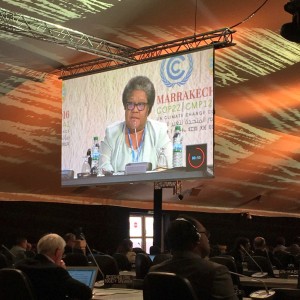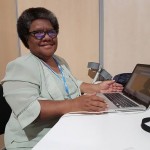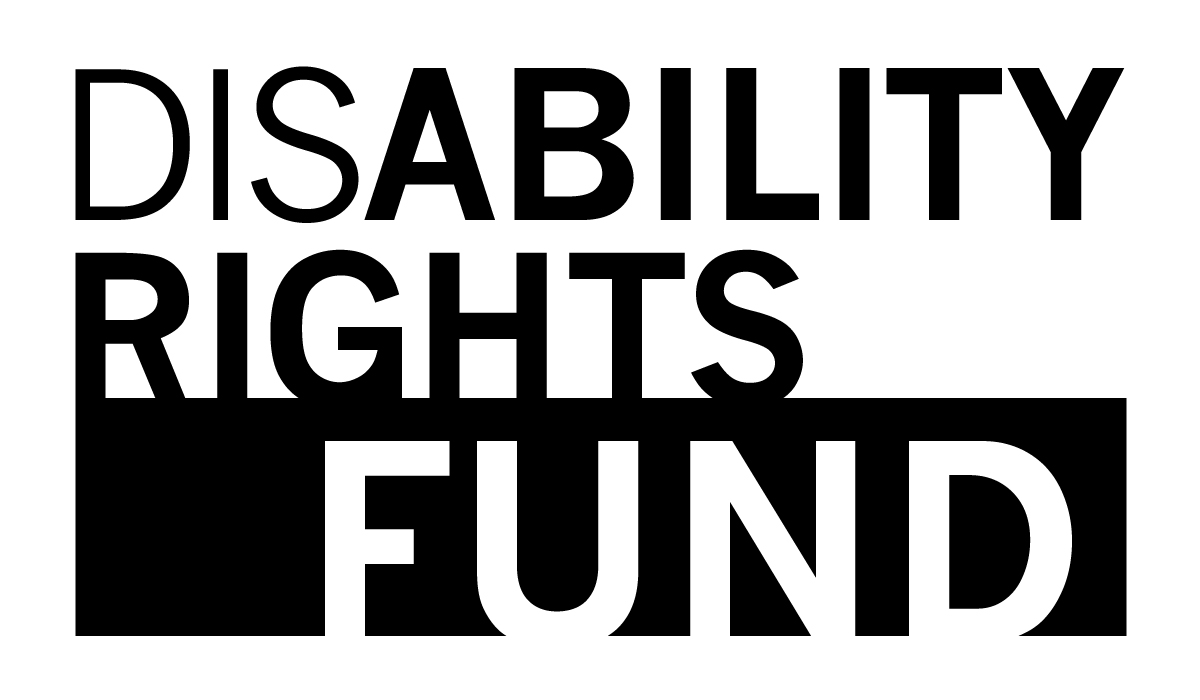Ipul Powaseu spoke on behalf of the Women and Gender Constituency at the UN Climate Change Conference 2016 in Marrakesh, Morocco. Here are her powerful remarks – spoken from her heart – as an indigenous woman with disability from a small island nation in the Pacific Islands.

My name is Ipul Powaseu and I am speaking on behalf of the Women and Gender Constituency. I come from a small island in Papua New Guinea and the impacts of climate change are real for me. The shorelines are eroding almost one meter every year and for me, this is threatening my way of life, my livelihoods, and even posing greater challenges that — as a woman with disability — I am also confronted with.
Issues resulting from climate change, impacts such as: decreasing food security resulting in malnutrition, decreasing access to clean water, sanitation, and hygiene, reduced access to infrastructure, shelter and basic services, and increasing displacement are realities that I, as an indigenous woman with disability, from a small island in the Pacific is faced with.
It is critical that we ensure the Paris Agreement is implemented in a way which leaves no one behind. Countries have committed themselves to transition to low-carbon and renewable societies, but the rules have not been outlined to ensure that this transition is just, that it takes us away from dirty energy and business as usual rather than promoting false methods of offset, nor that it ensures women and men will benefit and be engaged equally in this transition, respecting and promoting the human rights of all.
Frankly, the ambition, particularly from developed countries, to both cut emissions and provide the adequate means of implementation for developing countries to mitigate and adapt is nowhere near what the world needs.
For me personally, from the Pacific — this is a threat to our entire way of being, to our home, our ecosystem. The reality now is that small island developing states are already looking for land elsewhere as their homes are disappearing. It’s a threat that is in the here and now.
As COP 22 has been labelled the “COP of action,” we urge countries to take action NOW to address climate change. In this regard, although a lot of noise is being made around the entry into force of the Paris agreement, the Women Gender Constituency would like to remind countries that the Doha Amendment still hasn’t been ratified. Action is inevitable.
For us in Papua New Guinea and the Pacific, action is not an option, it is a must. The longer we wait, the harder it will be.
We have witnessed a normative shift in this process, recognizing the very clear linkages between gender equality and climate change, highlighted by a new decision on a three-year work program on gender coming out of this COP. BUT, and I repeat that for women around the world, this crisis is happening in the here and now. We will work to raise ambition and ensure implementation of the Paris Agreement leaves no one behind, is built on strong consultation and consent with communities, is driven by decentralized gender-just solutions, which challenge dominant patterns of growth and consumption that cause climate change.
We are not here to be mainstreamed into a polluted stream.
It is within your power, all our power, to meet this crisis with the ambition and urgency it deserves. Let us work together.
The Disability Rights Fund acknowledges the Women’s Environment & Development Organization (WEDO) for their enthusiastic partnership to include Ipul Powaseu and women with disabilities in their COP22 agenda for gender equality and climate justice.
 Ipul is a person with a disability who has been instrumental in working for the rights for persons with disabilities in Papua New Guinea (PNG), particularly in access to public facilities and amenities and as a facilitator for national policy initiatives. She is the Chairperson of the PNG Assembly of Disabled Persons and also serves as a representative the Pacific Disability Forum.
Ipul is a person with a disability who has been instrumental in working for the rights for persons with disabilities in Papua New Guinea (PNG), particularly in access to public facilities and amenities and as a facilitator for national policy initiatives. She is the Chairperson of the PNG Assembly of Disabled Persons and also serves as a representative the Pacific Disability Forum.
The Papua New Guinea Assembly of Disabled Persons is the national disabled persons’ organization umbrella organization of PNG. Their mission is to empower persons with disabilities to meaningfully participate and positively contribute towards nation building in PNG. They are leading a National Coalition, funded by the Disability Rights Advocacy Fund, to advocate for the development and adoption of a National Disability Bill.
